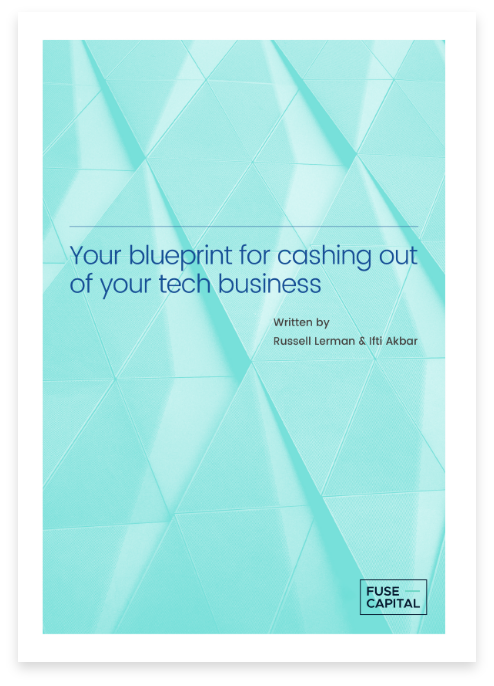Business Acquisition Loan
Fund business acquisitions with private debt finance
One popular form of private debt loan that we have helped clients secure is the business acquisition loan for merger & acquisitions (M&A). At Fuse Capital, we have helped more than 350 clients secure such a loan.
A business acquisition loan can you help you achieve growth via the following M&A strategies:
- Buy and build strategy: buying a well-established company in the area that your company intends to expand to
- Rollup strategy: buying and merging smaller companies in the same industry to consolidate into a larger company
- Targeted acquisitions
- Additional growth capital alongside acquisition
For other private credit use cases, please check out the individual pages: bridging loans, extending cash runway, working capital and share buyback and organic growth.
As we will go on to illustrate below, tapping private lending for M&A growth amongst all the options, is attractive. However, it is not for everyone, especially in the technology industry.
Traditionally, business acquisition loans are only available to borrowers with a strong reputation, an established customer base, proven track records and with high quality assets that can serve as collateral.
However, as the modern technology business does not have many assets in the traditional sense, there is less to fall back on for lenders. Hence, besides the aforementioned qualities, your technology business must have sustainable, recurring cash flows to be able to secure a business acquisition loan.
Download our ebook
“Your blueprint for cashing out of your tech business”
Written by Russell Lerman & Ifti Akbar
Download
Why use private debt for business acquisition loans
Funding acquisitions with private debt funding will often reduce cost of capital and equity dilution. There is a plethora of options to choose from, but gaining the most optimal structure and terms for your business can be challenging. It certainly helps if you know where to start your search search, and if you don’t, talk to someone who does.
So, what are the financing options for M&A?
Private debt
This loan type evaluates whether your future cash flows can cover the debt load. The main benefit of a private business acquisition loan is that it is much more flexible and can be executed faster compared to other sources of financing. Though interest rates may be higher, it is still low in the absolute sense.
Bank loan
This is typically the first port of call for most businesses, but also the most difficult, especially for fast growing small-mid size technology companies. As mentioned earlier, the modern technology business model (i.e. negative cashflows and few tangible assets) does not go well with traditional bank underwriting models and banking ratios.
Further, stricter lending requirements post the Global Financial Crisis in 2008 has meant that bank lending is a lot more conservative today. Business acquisition loans are made to larger and not smaller firms, and dealing with banks can be a long, drawn-out process with very strict terms and structure.
Company equity
Equity can either be given to the seller or to a third-party financier (e.g. private equity, family office etc.) in exchange for financing.
It is a very expensive option in the long-term but can be worthwhile if you wish to retain the seller’s expertise, or if a third-party financier can provide certain expertise which you do not have.
This is also an attractive option for publicly listed technology companies which enjoy high valuations and has been commonly used in 2020. However, it may not be as easily used for private companies.
Company funds
A company’s cash is typically used to finance part of a transaction, but it is very rare to finance an entire deal with it. Firstly, the buying price is typically a multiple of a company’s cashflow, and few companies will have years of profits kept as cash, unless the target company is a much smaller one.
Secondly, using too much cash will pose a liquidity risk, especially as capital is needed for post-merger integration.
Asset backed loan
These loans are made on the basis that in the worst-case scenario, the company pay off the loan even if its assets are liquidated. However, as mentioned, asset backed loans are typically not viable for fast growing, small & mid-sized technology companies.
Seller financing
This type of loan involves a smaller upfront payment and a promissory note for the remaining to be repaid over the next 3-5 years. As this is advantageous to the buyer, not many sellers may accept it.
Earnout
An earnout structure involves paying the seller a smaller upfront payment and a % of reviews in the following years post acquisition. This can be used in situations when the seller wants to retire or exit and wants to pull forward the medium-term revenue to the present, but still retain some longer-term upside.
Joint venture (JV)
You can also enter an acquisition with a JV partner who has the financial muscle power, but this introduces a lot more complexities in terms of operations.
Evaluation of the various financing tools for business acquisitions
In conclusion, we can see that private debt makes the most sense for fast growing, small-mid sized technology companies today as it is much more flexible, takes less time to secure and is cost effective.
How to use private debt for business acquisitions
Typically, companies use a combination of financing options when acquiring other companies. For instance, it could be a combination of company cash, company equity, business acquisition loan (i.e. bank debt or private debt) and seller financing.
Besides the standard term loan, private debt itself can also be a hybrid tool in the form of convertible debt or preferred equity. This is because as valuations of technology companies have risen today, debt as a percentage of the capital structure has shrunk, thus creating space in the capital structure for hybrid debt.
Would you like an example?
Here's how Airnow pivoted with a business acquisition loan
As mentioned, we have helped over 350 tech companies secure private debt to achieve their ambitions.
One notable client to mention whose goal was to acquire and then list is Airnow – a software company whom we have successfully worked with not once, but twice.
Originally founded under the name AppScatter, this SaaS mobile app distributor began its life as a platform serving the B2B arena.
AppScatter had identified a similar platform called Airpush, as the ideal target for the merger.
In April 2019, it was announced that AppScatter and Airpush planned to combine in reverse takeover.
The takeover would allow the enlarged group to penetrate a US$90bn addressable mobile app market and give its audience data on 3.4 billion mobile devices.
In 2020, having merged with Airpush, Philip Marcella, CEO of AppScatter announced new name and lists “Airnow plc”.
A powerful merge which delivered:
Huge cost saving efficiencies
Increased mobile data accuracy
An opportunity to compete with larger players
Company wide growth and evolution into a PLC

How Fuse Capital can you help source the best private debt solution
As a debt advisory and brokerage established since 2013, we are deeply rooted in the business community.
Out of the 6,500 private debt funds globally, we have close working relationships with some of the most technology savvy private debt lenders in the world and have helped over 350 technology businesses secure private debt solutions to support their growth.
This means that we are able to help you save precious time by reaching out to hundreds of capital providers with one go, as well as reach out to the most appropriate capital provider, anywhere in the world for your needs, while keeping your business name anonymous.
Private debt funds like to work with us for the same reason – we save them a great deal of time. We know what they want, what companies want and we help accelerate the matching process. We are able to do this as we are like an intelligence hub – we get inbound requests all the time, both from funds and from companies.
Further, our deep expertise as debt providers and entrepreneurs allows us to evaluate your business model accurately, present a convincing case to our partners, structure a business acquisition loan around your needs and to help you fight for the best loans terms.



